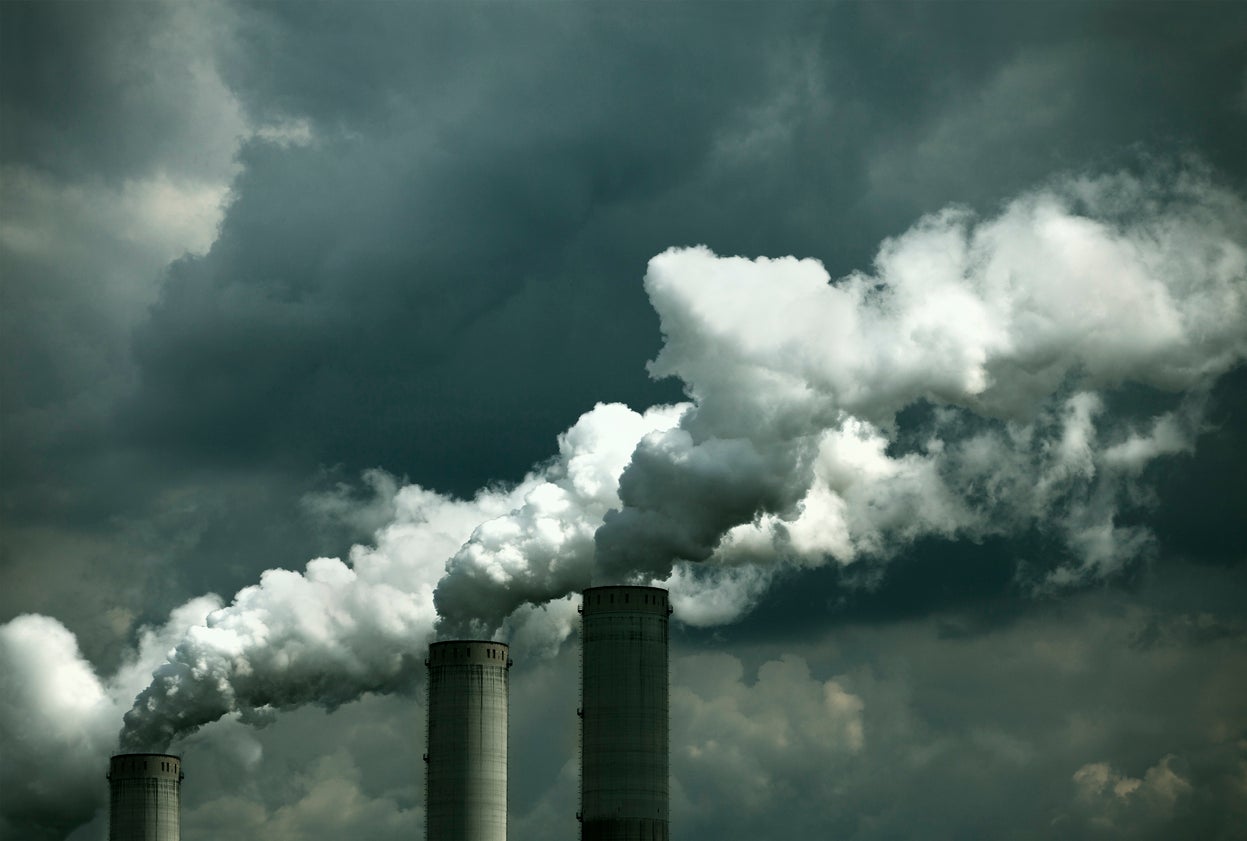Planet-harming fossil fuel companies can’t operate without insurance – let’s stop insuring them
The Climate Column: Insurance companies could play a huge part in the climate crisis fight. We need to convince them to ensure our future


The extraordinary power of the insurance industry was brought home to me last month, when listening to a Radio 4 interview. A music festival spokesperson said that their event had to be cancelled due to failing to obtain Covid-19 insurance.
I had never really considered that without insurance almost nothing can happen in the commercial world. It, therefore, makes sense that climate activists target the insurers of the fossil-fuel industry. Without insurance, no new oil, coal or gas field can open or continue operations.
Insurance Rebellion recently staged a peaceful protest outside Lloyd’s Insurance HQ, where it dumped a truckload of fake coal. “We demand they make good on their claims that they are moving away from coal, oil, and gas,” said Insurance Rebellion activists. Protesters claimed that Lloyd’s syndicates have refused to rule out underwriting the huge new Adani coal mine in Australia, while many other insurers have.
Some insurance leaders say the climate emergency poses an existential threat to the economic viability of their industry. Accelerating sea-level rise and increased extreme weather events threaten to radically increase the more than $1.3 trillion worth of economic costs already being incurred from natural disasters per decade. Parts of Florida, for example, experience about five days of flooding annually, this could increase to 200 a year within thirty years.
But at the same time, the US insurance industry is simultaneously the second-biggest investor in fossil fuels – an industry that contributes to global warming. Australia is the biggest coal exporter in the world, and Adani will become the largest coal mine in the history of the country. Climate groups have accused Lloyds syndicates of insuring the Adani mine. Lloyds declined to comment on Adani when directly asked for comment by The Independent.
The pressure is beginning to bear some fruit. Some insurance companies are ruling out insurance for new coal, shale oil and Arctic exploration projects, making it potentially more expensive or difficult to procure.
But many of the so-called net-zero insurance declarations have been criticised by campaigners for having potential loopholes. The latest environmental policy issued by Lloyds in 2020, promises to end all new thermal coal, shale-oil and Arctic exploration project insurance from 2022.
But this is only a tiny proportion of Lloyds’ market. There are more than 100 syndicates. The corporation, despite having the legal power to regulate what the syndicates offer insurance on (under the Lloyds Act 1982), is merely “asking” them to cease new thermal coal and shale oil insurance from 2022 and to phase out existing insurance by 2030, rather than imposing a requirement to do so.
Lloyds also place a significant caveat by only applying them to corporations who derive more than 30 per cent of their income from coal, shale oil or Arctic projects, whereas Aviva is applying a 5 per cent threshold.
“Lloyds is committed to accelerating its transition towards a more sustainable insurance and reinsurance marketplace and has set out specific actions and commitments to align with the goals of the Paris Agreement,” a Lloyds spokesperson told The Independent.
Existing fossil-fuel oilfields and coal power stations would also have to close if they lost the ability to get insurance. While it would be convulsive for the global fossil-fuel addicted economy to go cold-turkey overnight, the depth of the emergency demands that it is largely decarbonised within five years. An immediate moratorium on insurance for all new fossil fuel projects and the phasing out of insurance for almost all existing fossil-fuel infrastructure by 2030 would be hugely beneficial to the planet.
While it’s promising that the United Nations Environment Programme Finance Initiative is pursuing an agreement with the major insurers, to be announced by the Cop26 climate summit in November, climate campaigners fear the agreement will be drawn up with far off dates and loopholes.
Shadow business secretary Ed Miliband toldThe Independent: “The UK should be setting the pace in urgently greening the world’s financial systems. Rather than underwriting new coal projects, financial institutions including Lloyd’s should come forward with clear plans to align their portfolios with the Paris Agreement. And rather than sitting on their hands, the government should follow the CCC’s Financial Advisory Group’s recommendations and make those plans mandatory.”
The insurance industry has a pressing duty to be the silver bullet that ensures our future, not our destruction.
More information on the Coal Day of Actions and Insurance Rebellion can be found here
Join our commenting forum
Join thought-provoking conversations, follow other Independent readers and see their replies
Comments
Bookmark popover
Removed from bookmarks